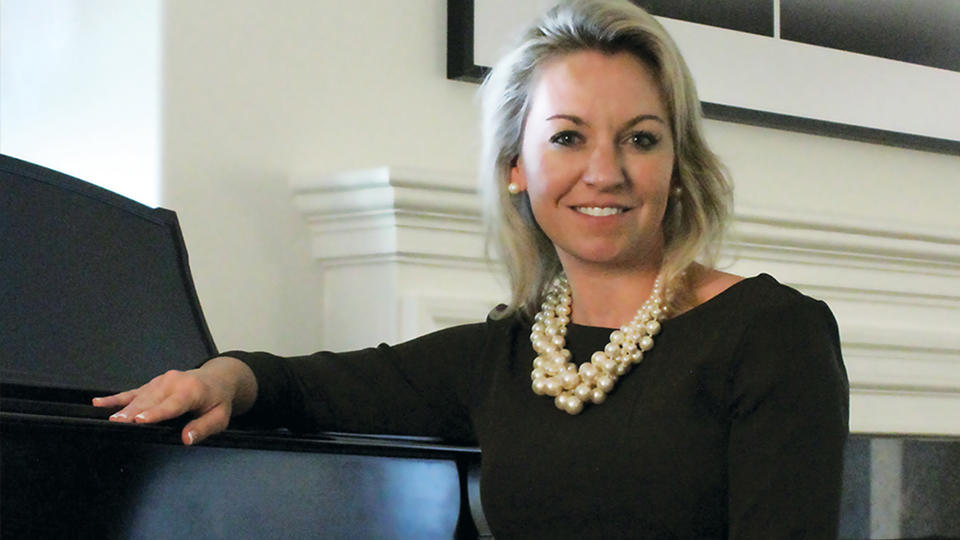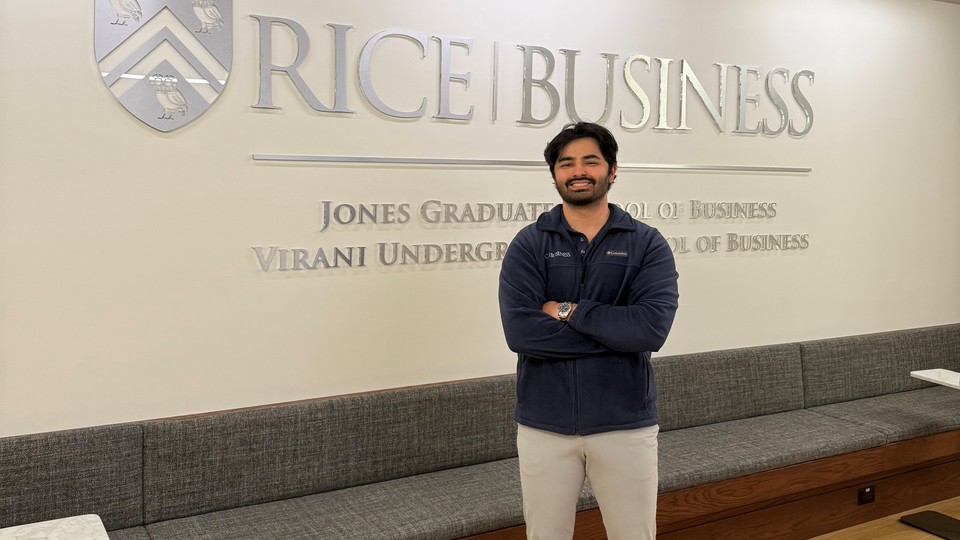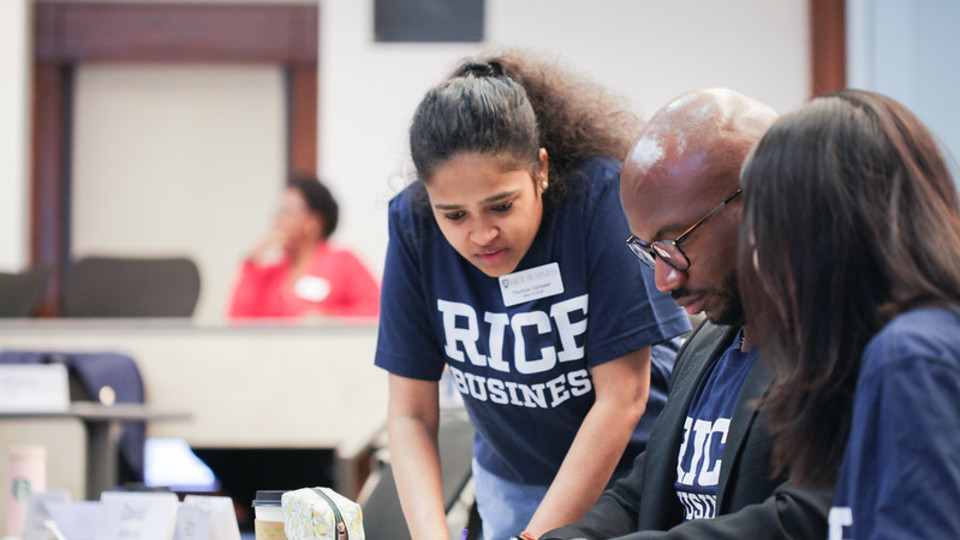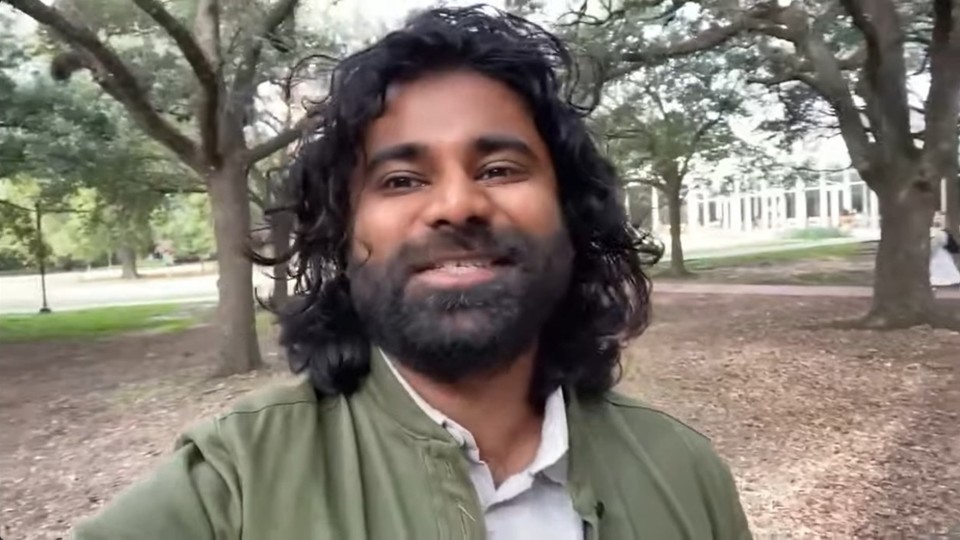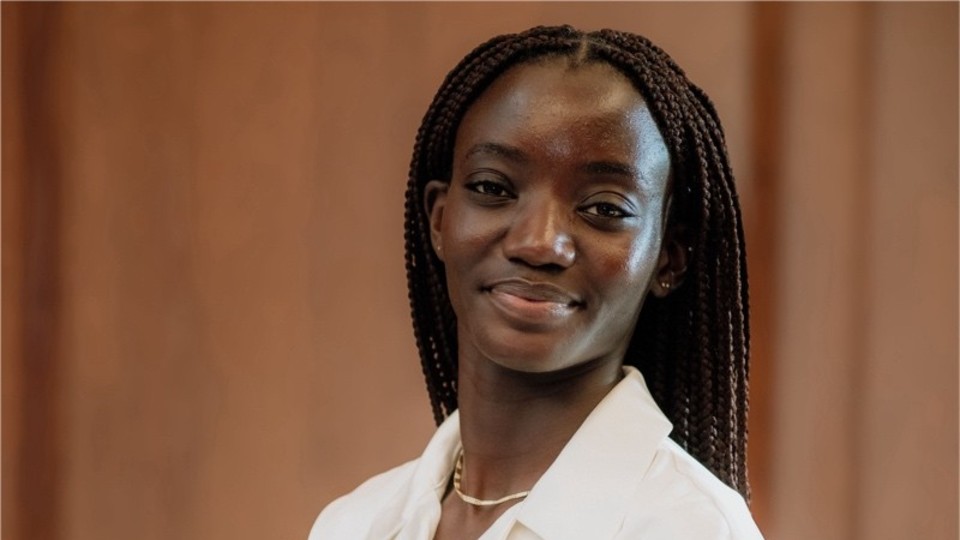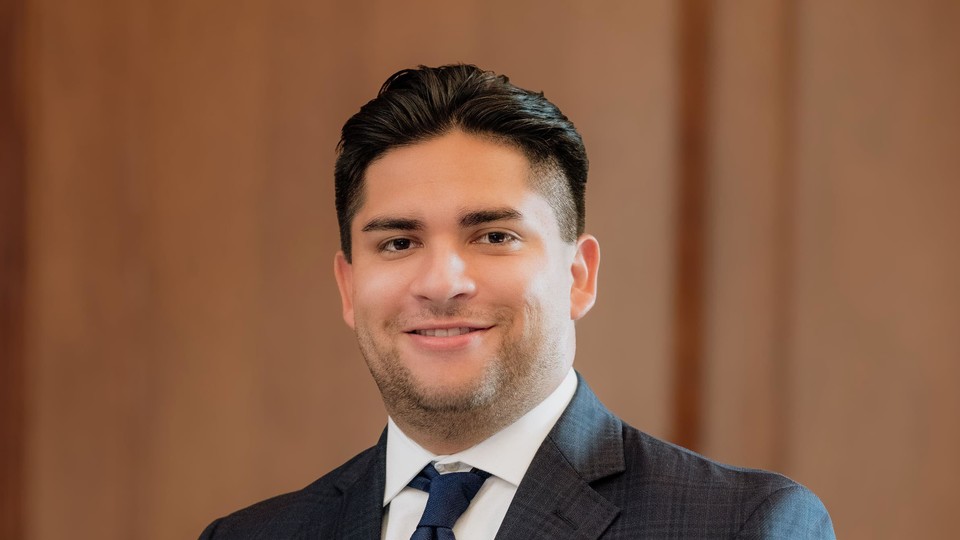Top CPA Exam Score Winner - Third Year in a Row!
A Rice MAcc alum wins prestigious Elijah Watt Sells Award from the American Institute of Certified Public Accountants (AICPA) for the third consecutive year.


A Rice MAcc alum wins prestigious Elijah Watt Sells Award from the American Institute of Certified Public Accountants (AICPA) for the third consecutive year.
Another One!
We are thrilled to announce that, for the third year in a row, one of our Rice MAcc graduates earned the prestigious Elijah Watt Sells Award. This is an extraordinary achievement, especially considering the purposefully small size of the Rice MAcc program. Interestingly, none of our three winners had an undergraduate degree in accounting. This demonstrates that students from any undergraduate major can excel in accounting!
About the Elijah Watt Sells Award
The Elijah Watt Sells Award program, established in 1923, honors the legacy of Elijah Watt Sells, one of the country's first CPAs. Every spring, the American Institute of Certified Public Accountants (AICPA) announces the winners of the award in recognition of outstanding performance on the CPA exam. Recipients must have passed all four sections on the first attempt and obtained a cumulative average score above 95.5.
Our 2019 Winner
Molly Garrison, winner of the 2019 Elijah Watt Sells Award, graduated in the Rice MAcc class of 2019. Almost 75,000 individuals sat for the CPA exam in 2019 with the award going to the top 137 candidates. That puts Molly among the 0.02% of 2019’s CPA exam takers! Prior to the Rice MAcc, Molly earned her B.A. in English and Psychology from Rice University. She is currently employed with PwC in Houston.
Interested in Rice Business?
Our Previous Winners
We are proud of all of our Elijah Watt Sells award winners. Our previous winners from the last two years are highlighted below.
Lauren Heller, Rice MAcc Class of 2018
Lauren Heller, the recipient of the 2018 Elijah Watt Sells award, graduated from Rice University with a B.A. in Mathematical Economic Analysis before earning her Master of Accounting. Lauren is now a Private Equity Associate with Apollo Global Management Inc. in Los Angeles, California.
Travis Guzzardo, Rice MAcc Class of 2017
Travis Guzzardo was awarded the Elijah Watt Sells award for 2017. Travis earned a B.A. in Mathematics and Sports Management from Rice University before completing his Master of Accounting. He is currently employed with Deloitte in Houston, Texas.
Are you interested in getting qualified to sit for the CPA exam? Click here for more information about our admissions process. To find out whether the Rice MAcc is a good fit for you, reach out to us today!
You May Also Like
Keep Exploring
Find Your Fit
Sina Yilu, Full Time MBA
Sina Yilu, former Rice Business Full Time MBA student, discusses what makes Rice Business the best fit for him and the value of the MBA.
Keep Exploring
On Becoming Part of the Community
Kory Li, Full-Time MBA
Full-Time MBA student Kory Li was drawn to Rice Business because of our stellar academics, but he quickly found his place by joining the Energy Club and becoming president of the Wine Club!
You May Also Like
Keep Exploring
Career Pivot
Sean Kim, Master of Accounting '20
After switching gears from public school teacher to public accountant, Sean Kim talks about why he joined the Rice Business MAcc program.
Keep Exploring
A Close Cohort
Claire Therien, Master of Accounting '20
The Master of Accounting at Rice Business is about more than getting a degree — it's about making connections and joining the family. Hear more about Claire Therien's experience at Rice Business and see why you belong here.
Keep Exploring
Preparing For Business School: Starting Off on The Right Foot At Rice’s MBA Program
After working in Deloitte’s Cyber Risk Advisory Group, Baldwin Luu (Rice, ’21) decided to enroll in Rice University’s MBA program. After packing up his things in San Francisco and moving to Houston, Luu began his first year in the MBA program at Rice. During this interview, Luu shared his journey to Rice, his guidance on how to prepare for business school and tips for navigating the virtual MBA Experience.
Georgia State U.’s Aurign wins 2020 Rice Business Plan Competition
Aurign from Georgia State University in Atlanta rose to the top in the 2020 Rice Business Plan Competition (RBPC) hosted June 17-19 by the Rice Alliance for Technology and Entrepreneurship and Rice’s Jones Graduate School of Business.
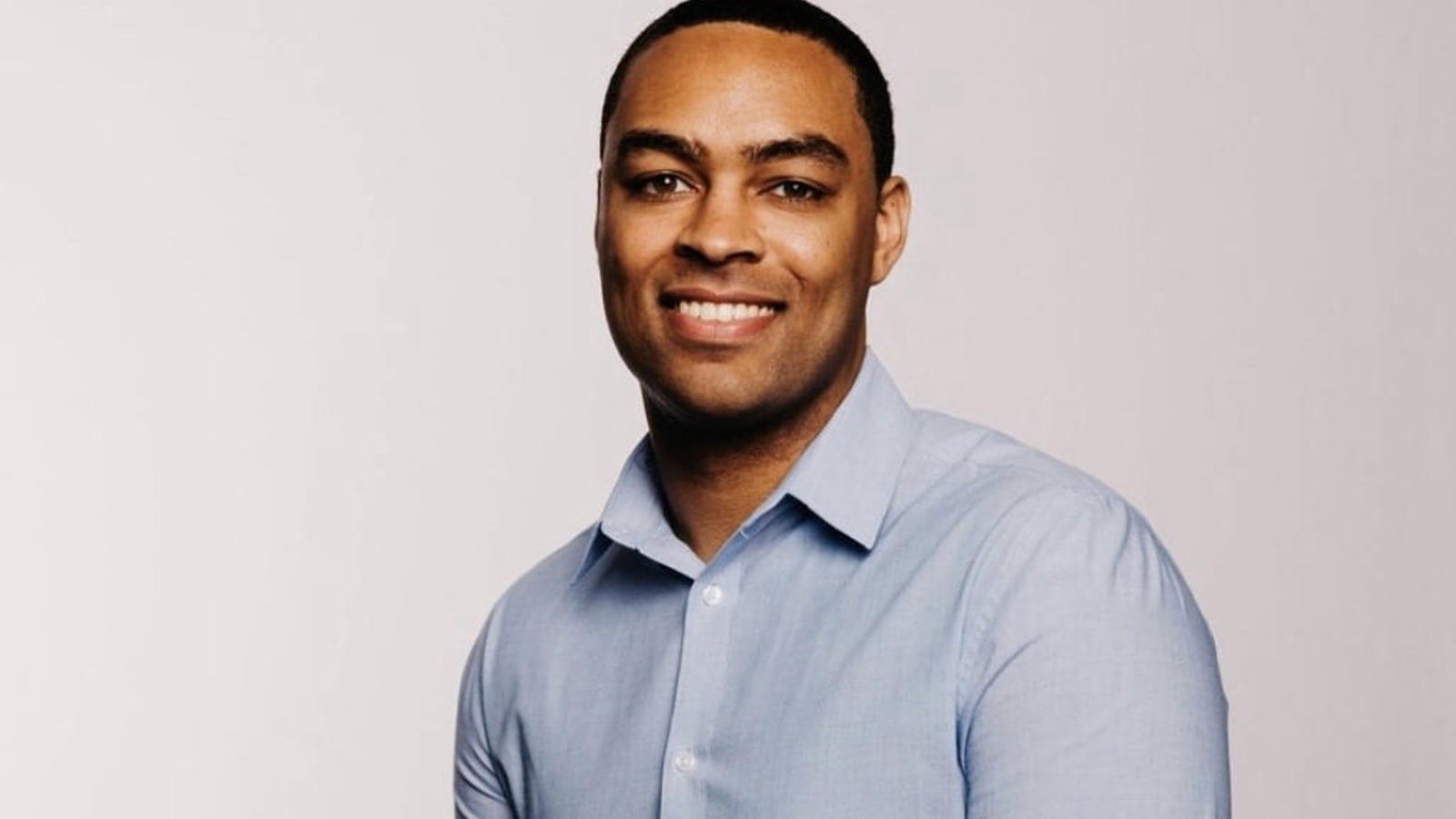
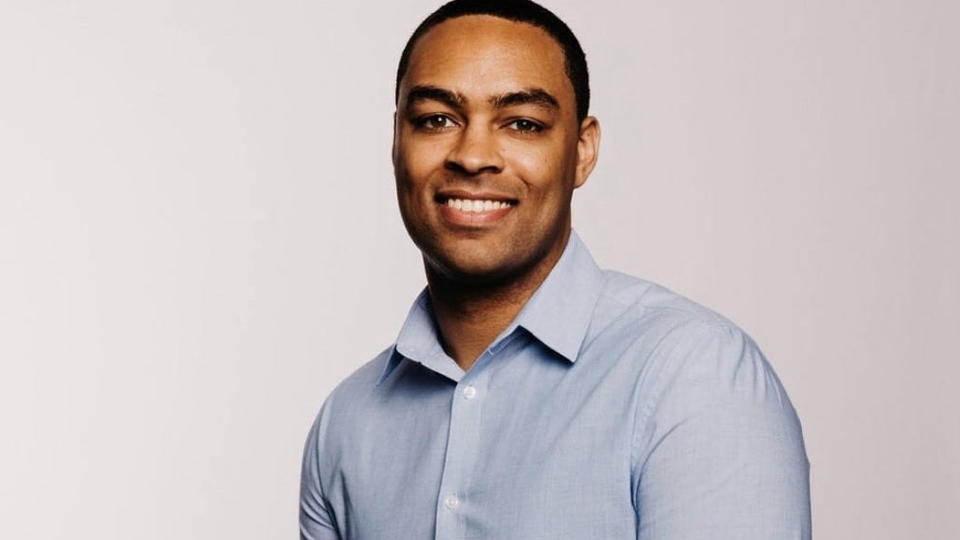
Aurign from Georgia State University in Atlanta rose to the top in the 2020 Rice Business Plan Competition (RBPC) hosted June 17-19 by the Rice Alliance for Technology and Entrepreneurship and Rice’s Jones Graduate School of Business. The annual event — held virtually for the first time this year, its 20th — is the world’s richest and largest student startup competition, with over $1.3 million in prizes announced and seven teams winning over $100,000 each this year.
Aurign was selected by a panel of judges as the startup with the highest investment potential, taking home $375,000 in cash and prizes. Aurign uses data analytics and blockchain technology to automate music publishing agreements for artists to secure their royalty payments.
Significant prizes this year and the teams that won them include:
- $350,000 GOOSE Capital Investment Grand Prize — Aurign, Georgia State University
- $100,000 Jon Finger and Finger Interests, David Anderson and the Anderson Family Fund, Greg Novak & Tracy Druce Second-Place Investment Prize — nanopathdx, Dartmouth College
- $50,000 Jon Finger and Finger Interests, David Anderson and the Anderson Family Fund, Greg Novak & Tracy Druce Third-Place Investment Prize — Fractal, Harvard University
- $100,000 Houston Angel Network Investment Prize — Fractal, Harvard University
- $100,000 Houston Angel Network Investment Prize — Beltech, University of Chicago
- $100,000 TiE Houston Angel Group Investment Prize — RefresherBoxx, RWTH Aachen University
- $100,000 The Artemis Fund Investment Prize — BIOMILQ, Duke University
- $100,000 TMC Innovation Healthcare Investment Prize — Cardiosense, Northwestern University
- $25,000 NASA Space Exploration Innovation Award — AlgenAir, University of Maryland
- $25,000 NASA Human Health and Performance Award — Cardiosense, Northwestern University
- $25,000 Southwest National Pediatric Device Prize — SlumberFlow, University of Michigan
- $25,000 Southwest National Pediatric Device Prize — Relavo, Johns Hopkins University
- $25,000 Courageous Women Entrepreneurs Investment Prize — Relavo, Johns Hopkins University
- $25,000 Courageous Women Entrepreneurs Investment Prize — nanopathdx, Dartmouth College
- $25,000 Texas Business Hall of Fame Best of Texas Prize — EVA Technologies, Rice University
- $25,000 Pearland Economic Development Corporation Spirit of Entrepreneurship Prize — nanopathdx, Dartmouth College
- $20,000 OFW Law FDA Regulatory Strategy In-Kind Prize — Cardiosense, Northwestern University
- $20,000 Silver Fox Advisors Mentoring In-Kind Prize — EVA Technologies, Rice University; NanoCare, Texas State University; SeebeckCell Technologies, the University of Texas at Arlington
- $15,000 Polsinelli Tech Innovation In-Kind Award — Relavo, Johns Hopkins University
- $15,000 Polsinelli Energy Innovation In-Kind Award — Contraire, Oklahoma State University
- $5,000 Each Capital Factory Golden Ticket In-Kind Prize — EVA Technologies, Rice University; NanoCare, Texas State University; SeebeckCell Technologies, the University of Texas at Arlington
- $4,980 SheSpace Membership In-Kind Prize — nanopathdx, Dartmouth College
- $3,000 Palo Alto Software Outstanding LivePitch Prize — nanopathdx, Dartmouth College
The prizes were announced June 17 to conclude the three-day event.
The OWL Investment Group, which has invested over $3.5 million in past RBPC startups, also participated in the 2020 competition and will announce its prize in the coming weeks if it chooses to invest this year.
The 42 teams came from 39 universities in eight different countries. More than 400 teams applied for the competition, which focuses on three categories: life sciences, energy/clean technology/sustainability, and tech innovation.
The event kicked off with each team making its case in a rapid-fire, 60-second elevator pitch contest on the first day of the competition and in 10-minute investment pitches on the second day.
The seven finalists were:
Aurign, Georgia State University — Grand prize and individual prizes with a total value of $375,000.
The grand prize includes:
- $350,000 Investment Prize from Goose Capital.
- Business plan software provided by Palo Alto Software.
- Opportunity to ring the closing bell at the NASDAQ Stock Market in New York.
- $25,000 in-kind CFO Prize Consulting from RG Advisory Partners.
nanopathdx, Dartmouth College — second place and a total of over $157,980 in prizes.
Nanopathdx is developing a platform that can sensitively and rapidly identify multiple viral RNA targets directly from a nasal swab.
Fractal, Harvard University — third place and more than $150,000 in total prizes.
Fractal streams Harvard GPU-powered cloud computers at ultralow latency to any internet-connected device for a monthly fee.
RefresherBoxx, RWTH Aachen University — fourth place and more than $105,000 in total prizes, including $5,000 Norton Rose Fulbright Fourth-Place Cash Prize.
RefresherBoxx disinfects, dries and refreshes textiles of any kind without water or chemicals.
Beltech, University of Chicago — fifth place and more than $105,000 in total prizes, including $5,000 EY Fifth-Place Cash Prize.
Beltech is an advanced battery material company which develops, manufactures and distributes critical materials to significantly enhance the performance and safety of lithium-ion batteries.
Cardiosense, Northwestern University — sixth place and more than $150,000 in total prizes, including $5,000 Chevron Technology Ventures Sixth-Place Cash Prize.
Cardiosense is a cardiac monitoring platform that leverages wearables to noninvasively capture hemodynamics such as blood pressure and cardiac output.
Relavo, Johns Hopkins University — seventh place and more than $70,000 in total prizes, including $5,000 Shell Ventures Seventh-Place Cash Prize.
Relavo is a medical device company with technology specifically designed to reduce the risk of infection associated with home peritoneal dialysis by internally disinfecting connected dialysis tubes.
Additionally, KnoNap of Georgetown University won the Elevator Pitch Competition and a $1,000 cash prize from Mercury Fund. The top five elevator pitches were awarded cash prizes.
All competitors will also receive:
- EFN mentoring
- Entrepreneur Futures Network (EFN) mentors have offered pre-competition mentoring and advice to each of the 42 teams who have been invited to participate at the 2020 RBPC. They have provided advice in areas such as refining a business plan, refining financial models, and improving presentation skills.
- Amazon Web Services
- Amazon Web Services will provide up to $5,000 in service credits for each of the 42 startup teams for 2 years. This comes with 1 year of Business Support (up to $1,500) and opportunities to Qualify for Additional Credits. The credits will expire one year from June 19, 2020, which is June 18, 2021.
- Support from the more than 140 corporate and private sponsors of the competition.
The RBPC has enhanced the probability of success for student entrepreneurs and their startups by providing mentoring and guidance, deep connections to the entrepreneurship ecosystem and opportunities for engagement. This year’s virtual competition brought together over 225 angel, venture capital and corporate investor judges and some of the most promising startups from around the world.
One upside to the virtual format was the ability to provide a bigger platform for the startups, with more people able to watch the pitches and learn about the companies. The Greater Houston Partnership provided support for moving the competition online.
“For over a decade, the Partnership has enjoyed working alongside Rice University to show the most promising student entrepreneurs from around the world why Houston is the ideal place to bring their technologies to scale,” said Susan Davenport, chief economic development officer for the Greater Houston Partnership. “During these unprecedented times, we are glad that our support has allowed for the first-ever virtual Rice Business Plan Competition.”
Since the RBPC’s inception in 2001, when nine teams competed for $10,000, more than 235 competitors have gone on to successfully launch their ventures and are still in business today or have successfully sold their ventures. Past competitors have raised over $2.6 billion in funding and created more than 3,700 jobs.
For more information about the RBPC, visit www.rbpc.rice.edu.
During these unprecedented times, we are glad that our support has allowed for the first-ever virtual Rice Business Plan Competition.
Susan Davenport
Chief Economic Development Officer, Greater Houston Partnership.
Trump Suspends H-1B Through 2020, But Leaves OPT Intact
Rice University Jones Graduate School of Business Dean Peter Rodriguez likened restrictions on international students to intentional self-harm. “What is hard to communicate to those who aren’t familiar with the H-1B visa process, or OPT and the STEM extension, is just how competitive these programs are and what it means for the U.S. to be able to employ relatively small numbers of the best talent the world has to offer.”

42 student startups to compete for over $1 million in first virtual Rice Business Plan Competition
The competition kicks off June 17 with the Mercury Fund Elevator Pitch competition, a fast-paced, 60-second glimpse of all 42 startups. Round 1, set for June 18, will feature 10-minute pitches from each startup followed by a Q&A session with expert judges, and seven winners will advance to the live finals June 19.


Public is invited to watch events online
In its 20th year, the Rice Business Plan Competition (RBPC) — the world’s largest and richest student startup competition — is going virtual. Register to watch at rbpc.rice.edu.
Forty-two startups from eight countries and 39 universities will compete for over $1 million in cash, investments and other prizes beginning June 17, with technological support for the online event provided by the Greater Houston Partnership.
The RBPC helps student entrepreneurs enhance their odds of success by providing mentoring, feedback on their pitches and startups, and connections to investors. Of this year’s entries, 45% are related to life sciences, 31% to energy, 12% digital% tech innovation, and 5% consumer applications.
The competition kicks off June 17 with the Mercury Fund Elevator Pitch competition, a fast-paced, 60-second glimpse of all 42 startups. Round 1, set for June 18, will feature 10-minute pitches from each startup followed by a Q&A session with expert judges, and seven winners will advance to the live finals June 19. Each finalist will have 10 minutes to sell itself, followed by a Q&A with judges. Scores will then be tallied and prizes announced.
“The RBPC creates an environment for competitors, judges, sponsors, volunteers and attendees to connect, learn from each other, pursue big ideas and make a powerful impact on people’s lives,” said Brad Burke, managing director of the Rice Alliance for Technology and Entrepreneurship. “While we won’t be able to gather in person, and we’ll miss the energy of 500 people in the Jones Graduate School of Business, the virtual competition will still achieve its mission of providing connections and capital to promising graduate student-led startups. We believe this is essential for startups in this challenging economic environment.”

The RBPC, hosted by the Rice Alliance and Rice Business, has seen more than 235 startups go on to successfully launch their companies and raise more than $2.6 billion in funding.
This year’s prizes are expected to be similar to last year, including the $350,000 Investment Grand Prize from Goose Capital and the $100,000 second-place investment prize and $50,000 third-place investment prize from Jon Finger and Finger Interests, David Anderson and the Anderson Family Fund at the Greater Houston Community Foundation, Greg Novak and Tracy Druce. All finalists will receive prizes, with those placing fourth through seventh winning $5,000 each, sponsored by Norton Rose Fulbright, EY, Shell Ventures and Chevron Technology Ventures, respectively.
Other notable prizes include the $100,000 Houston Angel Network Investment Prize, the $100,000 Artemis Fund Investment, the $100,000 TiE Houston Investment Prize and the $100,000 Texas Medical Center Innovation Healthcare Investment Prize. Additionally, the Owl Investors, who have invested over $3.5 million in RBPC startups since 2011, are participating again this year.
Additional cash and investment prizes sponsors include:
- $50,000 — Southwest National Pediatric Device Innovation Consortium
- $50,000 — NASA Johnson Space Center
- $25,000 — Texas Business Hall of Fame
- $25,000 — nCourage Women Entrepreneurs Investment Group
- $25,000 — Pearland Economic Development Corporation
You May Also Like

Rice University’s Jesse H. Jones Graduate School of Business today announced the launch of its Graduate Certificate in Healthcare Management program, a 10-month, credit-bearing professional credential designed for current and aspiring leaders seeking deep expertise in the business of healthcare.
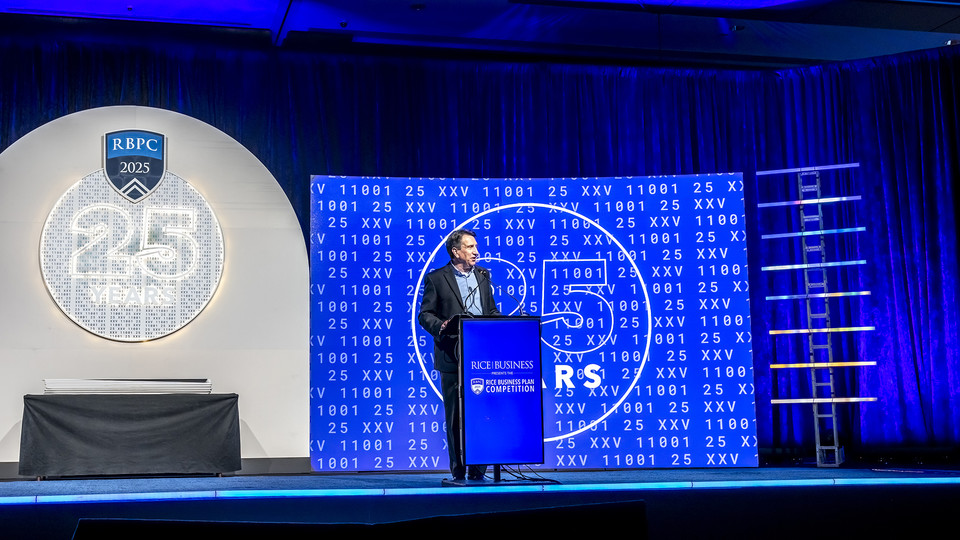
An all-veteran ownership team, Summit Point Leadership LLC, which launched through the Jones Graduate School of Business at Rice University and its Entrepreneurship Through Acquisition (ETA) Lab, has acquired the business of LDR Leadership LLC, a nationwide leadership, management and supervisory training firm.


